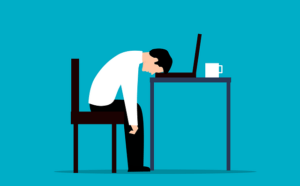Opinion
Union Views: Time for a chat?
Steen Vive
This article is more than 4 years old.

“Don’t worry (ooh, ooh ooh ooh oo-ooh ooh oo-ooh) be happy” (photo: Pixabay)
Do you want to change how you work? Do you want more challenges? Here is an insider’s tip: have a chat with your manager.
Whatever makes you happy
It is simple. Pursue what makes you happy and motivated: whether that is more variety in your work or more time with your family.
If something needs to change in your working life, it is your responsibility to speak up – and speak up before it is too late.
And as well as task meetings, ask your manager for a development meeting. Don’t just rely on your annual performance review.
Be specific and honest
Say in advance that you would like to discuss your personal situation at work. This will give your manager a chance to prepare.
At the meeting, be concrete and honest about your wishes and ambitions, whether you want more responsibility, more flexible working hours or more recognition within the team.
Accepting “No”
Will you be happy if your manager doesn’t want anything to change? If you can’t accept “no”, then what will you do?
Don’t ask for too much and suggest solutions for how you can achieve what you want. Also, agree on what should happen next. Are you going to meet again or should HR be involved?
You need to be happy with your choices and options. But be realistic. If you aspire to a top management position, it is likely that you’ll be working more than 37 hours a week. Consider what is important to you and have that chat with your manager if necessary.
Tips for talking to your boss
– Don’t bottle up your frustration and let it all out at once. Talk to your manager about your concerns frequently
– Be clear and honest, and make suggestions for solutions
– Consider that your manager might say “no”. What are your options?
– Remember to plan for what could happen after the meeting

About
Steen Vive
Steen is senior advisor at Djøf, the Danish Association of Lawyers and Economists. He is a blogger and manager of various projects aimed at generating jobs in the private sector. In this column he writes about trends and tendencies in the labour market. Follow him on Twitter @SteenVive.










































